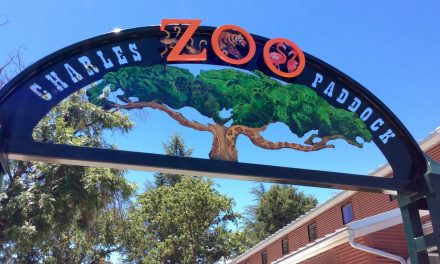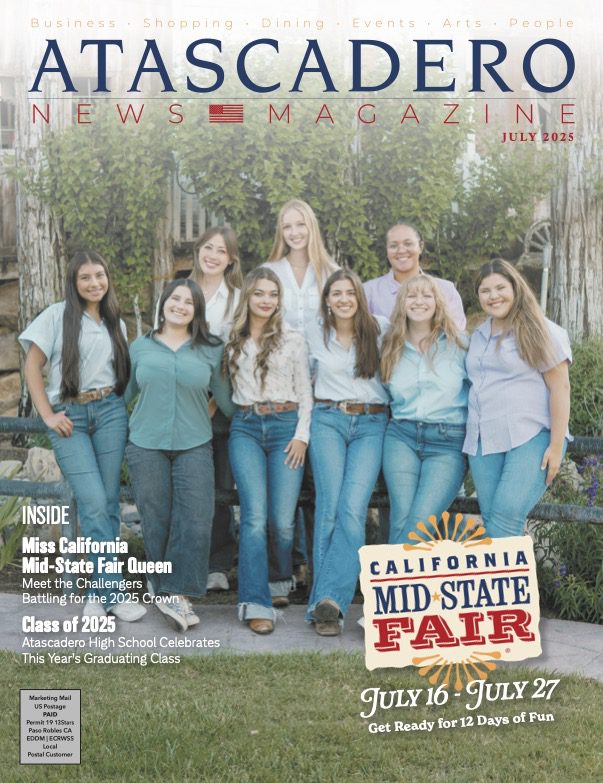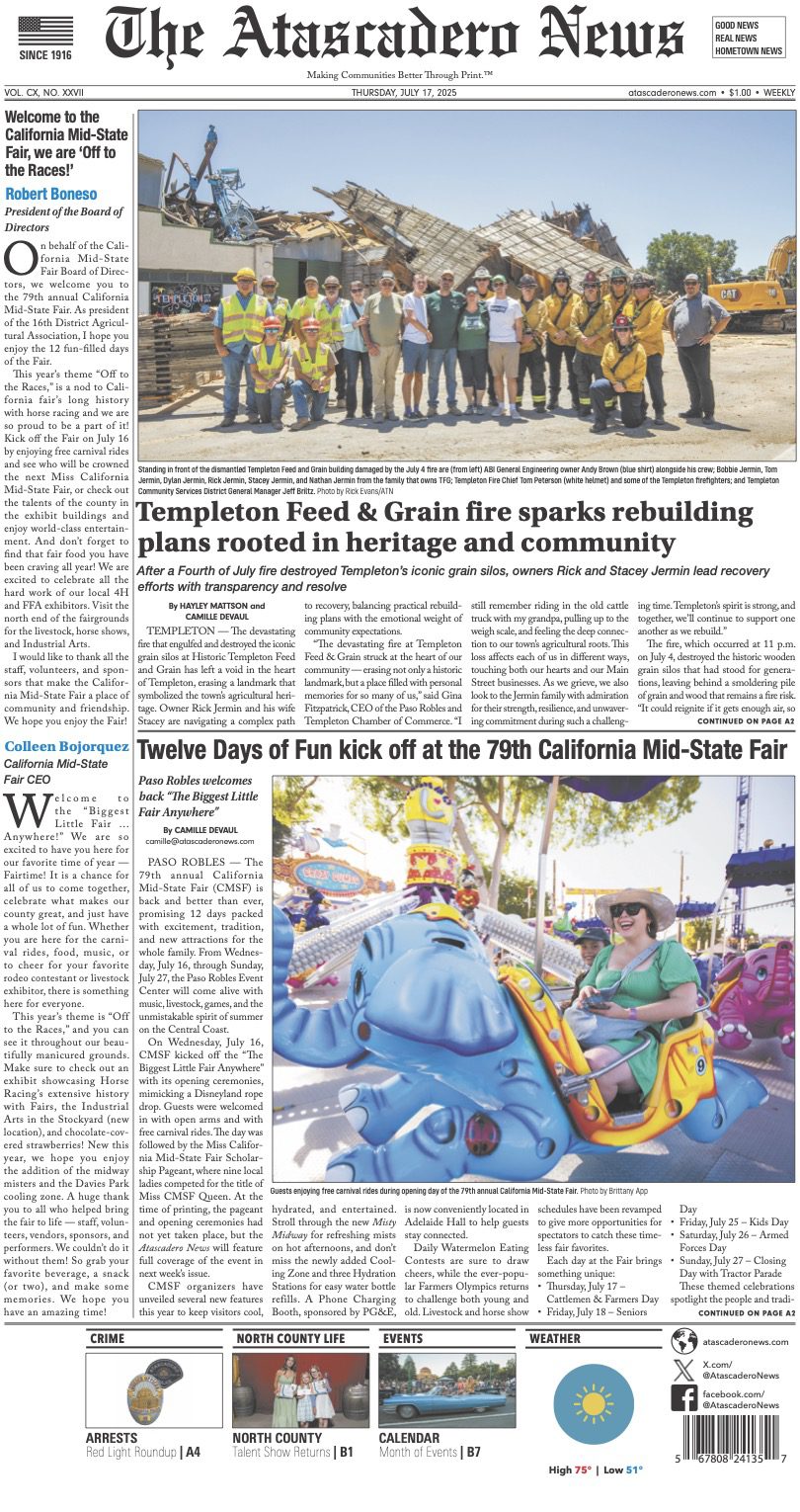Speakers generally support group’s mission, but worry over meal distribution to those not in its programs
ATASCADERO — The expansion plans for the El Camino Homeless Organization (ECHO) in Atascadero was a hot topic for the Atascadero City Council during its regular meeting Tuesday, May 13.
The council heard a report on the nonprofit’s community outreach to its neighbors concerning its plans to expand its Atascadero facility, which include an increase in beds, as well as an increase in its meal program.
The council asked questions and aired concerns about the groups plans in its efforts to help out and eventually house and get jobs for participants in its progams. Speakers during Community Forum, many of whom lived near the ECHO shelter and food distribution facility, also expressed concerns, mainly with the food program that gives daily meals to those not enrolled in ECHO’s placement programs, along with those receiving the group’s services.
On Nov. 12, 2024, the City Council reviewed and approved amendments to the operations and Management plan for the EL Camino Homeless Shelter (ECHO). The approved plan includes a future expansion of the facility to accommodate:
- An increase in the number of overnight beds from 60 to 90;
- Increase the number of meal program participants from 80 to 100;
- Increase the shower program operation hours; and
- The future construction of a new 7,600 square-foot two-story building at the front of the site.
The council approved the item in that meeting, but as a condition, requested that ECHO hold two community meetings with nearby residents to get feedback on the group and facility, and any concerns or complaints on its operation. ECHO held those meetings on Jan. 25 and March 13 of this year, and reviewed the findings at Tuesday’s council meeting.
Councilmember Susan Funk began the questions by noting litter, some of it “drug-related” that’s been reported by residents near the ECHO facility, which is located on Atascadero Avenue, just east of Atascadero High School. She asked Atascadero Police Chief Daniel B. Suttles how the department is dealing with that.
Suttles mentioned that a lot of the drug concerns stem from “the corridor,” the creek area where many homeless are encamped. Many are just drug users, but some are also dealers.
“The city been proactive in ordinances and enforcement. You’ll see camps, but not size of a year ago,” Suttles said. “We won’t be able to eradicate it 100%, but we’ll stay on top of it. You need to go off the beaten path to see them. We’re aware of it, but playing catchup.”
ECHO President/CEO Wendy Lewis was at the meeting to field questions, and said ECHO staff has been proactive in trying to alleviate problems.
“The main concerns we’ve gotten were about the corridor, and the trash around the area,” Lewis said. “We’ve engaged people about that, as well as those who have parked on the median for an extended time, and tried to talk to those who only come for the meals.”
“The clamshell containers are left by those who get the to-go meals instead of eating at the location. We’ve found that a reduced amount have left the facilities with the meals.”
Ultimately, comments from councilmembers and residents in public comments zeroed in on the organization’s meal program, where a daily meal is given to those who want it. While most participants are part of the program to help individuals and families get a job and permanent housing, some of them are not part of that program, but are not turned away.
Some residents, during public comment, expressed that the people who come just for the meals are the main violators, as far as litter, crime, and disturbances.
Atascadero resident Jay DeCou, who said he’s lived on Santa Lucia Road next door to ECHO for 24 years, praised the organization for recent cleanup and engagement, but wondered if the meal program can be modified.
“The troublemakers are transients that ECHO won’t take [into the housing program], you bring them in and they cause trouble,” DeCo said. “I’ve heard that the take-out meals are done by a third party, and if that’s so, maybe those can be distributed somewhere else.”
However, those involved with ECHO said the meals can be a means to engage with people and get them into the housing programs, where that would not be the case at a different location.
“Meals are provided for anyone in need,” said Linda Stewart, an Atascadero resident for over 40 years, and ECHO volunteer since 2016. “Meals give unhoused a chance to meet ECHO, and builds trust. Trust comes from being able to have that meal.”
Eric Yun, a senior Vice President for a local financial firm and ECHO board member echoed Stewart’s message.
“I have been unhoused, and now at a point I can contribute and help,” he said. “The meal program is our primary point of engagement.”
Other speakers on the evening expressed how ECHO has helped them in a time of need, and has now inspired them to volunteer. Meanwhile, concerned residents insisted they support the organization’s main mission.
“We’re not opposing the expansion, but the meal program is that bane of our existence,” said John Sanders, a 38-year resident who lives nearby on Santa Ynez Road.
Later, Councilmember Heather Newsom, finding out ECHO planned just an annual meeting with residents in the future, thought it should increase a bit.
“Having conversation is allowing us to solve these problems,” she said. “Meeting every six months is my recommendation, to have a more frequent conversation about this.”
The rest of the council seemed to agree and directed staff to continue to monitor the situation with ECHO and report back for a council item in six months.
The City Council meets next on Tuesday, May 27, at 6 p.m.















